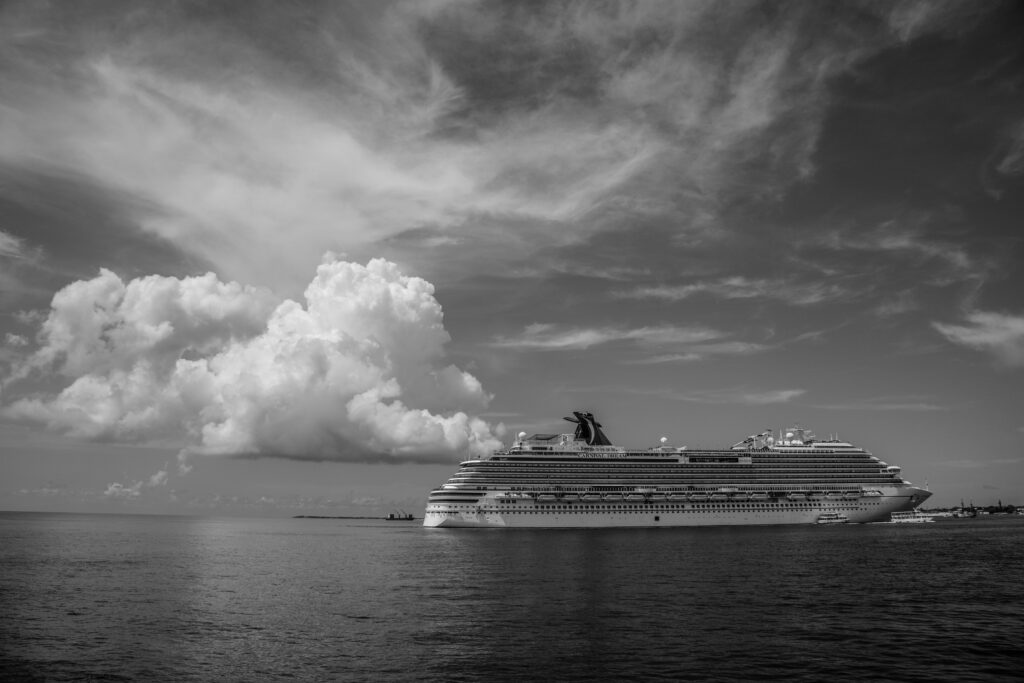
Are you someone with specific dietary restrictions who has always wanted to go on a cruise, but worried about not being able to find suitable food options? Look no further! In this article, we’ll explore the challenges faced by individuals with dietary restrictions when it comes to cruising and provide you with some valuable tips on how to navigate and enjoy your culinary experience on board. Whether you’re gluten-free, vegan, lactose intolerant, or have any other dietary restrictions, we’ve got you covered. Get ready to embark on a fantastic culinary journey!

Understanding Dietary Restrictions
Common types of dietary restrictions
When it comes to dietary restrictions, there are several common types that people may follow. Some individuals may have allergies or intolerances to certain foods, such as dairy, gluten, or nuts. Others may follow specific diets for health or personal reasons, such as vegan or vegetarian diets. Religious dietary restrictions, such as kosher or halal, are also common. It’s important to understand that each individual’s dietary restrictions may differ, so it’s crucial to clarify the specific limitations and requirements.
Importance of dietary restrictions
Understanding and respecting dietary restrictions is vital for the overall well-being of individuals with specific dietary needs. For those with allergies or intolerances, consuming certain foods can lead to severe allergic reactions or discomfort. Following a particular diet can be crucial for maintaining good health, managing conditions like diabetes, or adhering to personal beliefs. By recognizing and accommodating dietary restrictions, cruise lines can provide a seamless and enjoyable experience for all passengers.
Impact of not following dietary restrictions
Neglecting dietary restrictions can have significant consequences for individuals with specific dietary needs. Consuming foods that individuals are allergic or intolerant to can result in severe allergic reactions, ranging from mild symptoms like hives to life-threatening anaphylaxis. Failing to adhere to specific diets can also lead to discomfort, digestive issues, or exacerbate underlying health conditions. It is crucial for cruise lines and passengers to understand the potential risks and take necessary precautions to prevent adverse outcomes.
Communicating with the Cruise Lines
When to inform about dietary restrictions
To ensure a smooth dining experience, it is recommended to inform the cruise line about your dietary restrictions as early as possible. When making your reservation, or at least 30 days before departure, provide detailed information about your specific dietary needs. This allows the cruise line’s food and beverage team to make the necessary arrangements and ensure that appropriate options are available during your voyage.
How to communicate your dietary needs
When communicating your dietary needs to the cruise line, be specific and detailed. Clearly state any allergies, intolerances, or dietary preferences you have. Include information about the ingredients or types of foods you need to avoid, as well as any special requests or accommodations you may require. Providing as much information as possible will help the cruise line meet your dietary needs effectively.
Clarifying doubts regarding food policies and options
If you have any doubts or questions regarding the cruise line’s food policies or available options, don’t hesitate to reach out to their customer service team. They will be able to provide detailed information about the onboard dining experience, including special dietary arrangements. It’s better to clarify any concerns in advance to ensure a stress-free and enjoyable dining experience during your cruise.
Navigating the Cruise Dining Experience
Buffet meals and dietary restrictions
Buffet meals can be a challenge for individuals with dietary restrictions, as the variety and availability of suitable options may be limited. However, most cruise lines are aware of this issue and make efforts to provide alternatives. Speak with the staff at the buffet stations, who can guide you towards dishes that meet your dietary needs. If necessary, inquire about any special preparations or separate cooking areas for allergen-free or dietary-specific meals.
Understanding menus and food descriptions
When reviewing menus onboard the cruise ship, it’s important to carefully read the food descriptions. Look for any references to ingredients that may be problematic for your dietary restrictions. If the menu is not clear or lacks detailed information, don’t hesitate to ask the restaurant staff for clarification. They are there to assist you and can provide more information about ingredients, cooking methods, or potential alternatives.
Finding alternatives in dining options
If you find that the onboard dining options aren’t suitable for your dietary needs, don’t fret! Many cruise lines offer alternative dining options that cater specifically to various dietary restrictions. These may include specialty restaurants that can accommodate specific diets, such as vegan or gluten-free. Additionally, some cruise lines provide the option to pre-order custom meals to ensure your dietary requirements are met. Explore these alternatives to enhance your dining experience while adhering to your restrictions.
Dealing with Restaurants Onboard
Selecting safe and suitable dining outlets
There are typically several dining outlets onboard a cruise ship, ranging from formal dining rooms to casual eateries. When choosing a restaurant, consider the type of cuisine and the availability of suitable options for your dietary restrictions. Research the different dining outlets in advance to identify the ones that are more likely to cater to your specific needs. This way, you can make educated decisions and have peace of mind while dining onboard.
Planning meals in advance to avoid issues
To avoid any issues or surprises, it can be helpful to plan your meals in advance. Review the menus or available options for each restaurant before dining. This allows you to identify suitable dishes or request modifications, ensuring that your dietary needs are met. Planning ahead also gives you the opportunity to speak with the restaurant staff about any concerns or special requests, which can help prevent any complications during your dining experience.
Communicating with restaurant staff about restrictions
When dining in restaurants onboard, make sure to communicate your dietary restrictions clearly to the waitstaff. They are there to assist you and can provide valuable insights into the menu or suggest suitable alternatives. By informing the restaurant staff about your restrictions, they can work with the kitchen to ensure your meals are prepared safely and according to your dietary needs. Clear communication is key to a positive dining experience.

Provisions for Special Diets
Vegan and vegetarian options
For passengers following a vegan or vegetarian diet, cruise lines often provide a variety of options to accommodate these dietary preferences. From plant-based entrees to vegan desserts, the menus are expanding to cater to the growing demand for vegan and vegetarian-friendly meals. Additionally, specialized vegan or vegetarian restaurants may be available onboard certain cruise lines, providing even more choices for those with these specific dietary preferences.
Meal options for gluten-free diets
Many cruise lines now offer gluten-free meal options for passengers with celiac disease or gluten intolerances. These meals are carefully prepared to avoid cross-contamination and provide a safe dining experience. From gluten-free pasta dishes to desserts, there are often dedicated menus or options available. It’s important to inform the cruise line about your gluten-free needs in advance, allowing them to make the necessary arrangements for your dining experience.
Kosher, halal, and other religious dietary restrictions
Passengers with religious dietary restrictions, such as kosher or halal, should inform the cruise line in advance about their specific needs. Some cruise lines offer certified kosher or halal meals prepared under strict supervision. Additionally, certain dietary restrictions related to religious beliefs may require passengers to bring their own food onboard. It’s crucial to clarify these requirements with the cruise line to ensure a smooth and compliant dining experience.
Handling Emergency Food Situations
Access to necessary medical assistance
In case of emergency food situations, it’s important to know the onboard medical facilities and contact the ship’s medical team immediately. They are trained to handle medical emergencies, including severe allergic reactions. They can provide necessary medical assistance, such as administering epinephrine in the event of an anaphylactic reaction. Familiarize yourself with the location of medical facilities in advance to ensure quick access if needed.
Carrying necessary medication and supplements
If you have dietary restrictions or allergies, it’s crucial to carry any necessary medications or supplements with you during your cruise. This includes allergy medication, epinephrine injectors, antihistamines, or any other medications prescribed by your healthcare provider. Having these medications readily available can be essential in case of accidental exposure or allergic reactions while onboard.
Dealing with potential allergic reactions
Even with careful planning and communication, accidental exposure to allergens may still occur. If you experience a potential allergic reaction, seek medical assistance immediately. Contact the ship’s medical team and inform them about your symptoms and concerns. They will be able to provide appropriate medical care, assess the severity of the reaction, and take necessary steps for your well-being. It’s essential to take any potential allergic reactions seriously and address them promptly.

Traveling with Kids with Dietary Restrictions
Explaining the dietary needs to children
When traveling with children who have dietary restrictions, it’s important to explain their dietary needs to them in an age-appropriate manner. Help them understand why certain foods are off-limits and the potential consequences of consuming them. Emphasize the importance of sticking to their dietary restrictions for their health and well-being. Encourage open communication and provide reassurance that their dietary needs will be taken care of during the cruise.
Keeping kids engaged while ensuring dietary safety
Ensuring dietary safety for children with restrictions doesn’t mean they can’t enjoy their cruise experience. Help keep them engaged by involving them in the planning process. Let them assist in selecting suitable dining options or special meals. Many cruise lines offer kid-friendly menus and activities, so your child can still have an enjoyable dining experience while adhering to their restrictions.
Handling food fussiness and dietary restrictions
It’s not uncommon for children to be picky eaters or have food preferences that further complicate their dietary restrictions. In these situations, try to find suitable alternatives that meet both their dietary needs and their taste preferences. Be patient and understanding, and support them in exploring new foods that are safe for their restrictions. Assure them that the cruise line’s dining team is there to assist and provide options catered to their needs.
Customizing Your Cruise Experience
Private dining and special food requests
If you have specific dietary needs or preferences that cannot be adequately met onboard, consider exploring private dining options. Some cruise lines offer the opportunity to dine in a more intimate setting or request customized meals. This allows for a more personalized experience, ensuring that your dietary restrictions are fully accommodated. Contact the cruise line in advance to discuss private dining options and any special food requests you may have.
Carrying personal food items for emergencies
To provide an added layer of security, it’s recommended to carry personal food items that conform to your dietary restrictions. Pack snacks or pre-made meals that are safe for you to consume in case of emergencies or limited dining options while off the ship. This can help alleviate any concerns about uncertain situations and ensure that you always have suitable options available.
Options for off-board dining and excursions
While onboard dining options may be carefully planned to cater to dietary restrictions, off-board dining during excursions can pose challenges. Research the dining options at each port of call and identify restaurants or establishments that can accommodate your specific needs. If necessary, consider bringing your own food for the excursion or inform the cruise line about your requirements in advance, so they can assist in making suitable arrangements.

Personal Experiences and Anecdotes
Sharing stories from previous travelers
Listening to the personal experiences of previous travelers with dietary restrictions can provide valuable insights and tips. Many online forums and travel communities allow individuals to share their stories and offer recommendations. Reading these experiences can help you identify potential challenges and proactively plan ways to overcome them. Additionally, you may discover hidden gems with exceptional accommodations for dietary restrictions that you may not have otherwise known about.
Learning from the mistakes and successes of others
Learning from the mistakes and successes of others can be immensely helpful in navigating dietary restrictions on a cruise. Identifying common pitfalls or challenges faced by previous travelers can allow you to proactively address them during your own cruise experience. Conversely, hearing about success stories and positive experiences can inspire you to have a confident and enjoyable time while adhering to your dietary needs.
Gathering insights for improved dining experiences
By gathering insights from other travelers, you can gather an array of recommendations and suggestions for improving your own dining experiences. Note valuable advice about specific restaurants or cruise lines that excel at accommodating dietary restrictions. These insights can help you make informed decisions when choosing your cruise, allowing you to select a cruise line that prioritizes dietary accommodations and offers exceptional dining experiences for passengers with specific needs.
Traveling Post-Pandemic: Dietary Restrictions, Health, and Safety
Changes in food policies due to COVID-19
The COVID-19 pandemic has brought about significant changes in the cruise industry, including modifications to food policies. Cruise lines have implemented enhanced safety measures, such as increased sanitation protocols and modified dining arrangements to promote social distancing. These changes may impact the dining experience for passengers with dietary restrictions. It’s important to stay updated with the cruise line’s COVID-19 policies and guidelines to ensure a safe and enjoyable dining experience.
Extra precautions for passengers with dietary restrictions
In light of the pandemic, passengers with dietary restrictions should take extra precautions to ensure their safety. Wash or sanitize hands regularly, especially before meals, to minimize the risk of cross-contamination. Practice safe distancing and follow any additional guidelines provided by the cruise line. Communicate any concerns or specific requirements to the cruise line in advance to ensure their awareness and ability to accommodate your needs safely.
Importance of hygiene with respect to dietary risks
Maintaining good hygiene practices is always important, but it takes on added significance when navigating dietary restrictions. Adhere to recommended hygiene practices while onboard, such as washing hands thoroughly before eating and avoiding cross-contamination. Pay attention to food safety practices, such as ensuring that foods are properly cooked, stored, and handled. By prioritizing hygiene, you can minimize the risks associated with dietary restrictions and enjoy a safe dining experience on your cruise.

